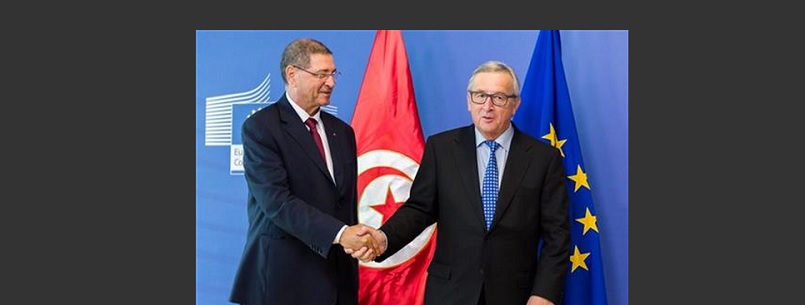
The European Union on Monday agreed to help Tunisia combat violent Islamic extremism and boost its economy, including by raising quotas on how much olive oil it can sell in EU markets.
Several cooperative measures were agreed upon Monday by EU foreign ministers in Brussels during a visit by Tunisian Prime Minister Habib Essid.
In a statement, the EU ministers expressed solidarity with the North African country following the attack last month at a Mediterranean beach resort that killed 38 tourists, many of them EU nationals.
EU foreign policy chief Federica Mogherini said it was in Europeans' own interest to assist Tunisia and its democratically elected government.
Mogherini said "we have to keep hope alive in a region that faces so many difficulties."
At the meeting, EU ministers also reviewed the situation in Libya, where many armed radicals active in Tunisia were reportedly trained in jihadi camps. The EU has been hoping for establishment of a national government in Libya so it can conclude agreements to stem the exodus of migrants leaving from its shores for Europe.
On July 11, some Libyan political leaders met in Morocco to initial an agreement designed to bring their country's civil war to an end. But one major faction, the General National Conference, balked, demanding a greater share of power.
The EU is seeking a "government of national unity" in Libya, and is ready to wield both carrots and sticks to make it a reality, Mogherini made clear.
The bloc has a 100-million euro ($108 million) aid package ready as soon as a new Libyan government can been formed, she said. And, without naming names or revealing a timetable, she said the EU ministers also discussed imposing economic sanctions on Libyans who have become "spoilers" of the effort to forge national unity.
